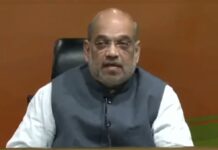The Supreme Court today said that the Centre’s “big” talk on a one rank-one pension policy has created a much better picture than what ex-servicemen actually get.
The government claims that under the one-rank-one-pension policy, the same pension has been ensured for the employees of the armed forces who have served in the same post for the same period. But the government has said that the issue of increasing the pension will be looked into, after five years. The ex-servicemen demanded that arrangements should be made to increase the pension every year.
The ex-servicemen’s organization has filed a case in the Supreme Court over the issue. Yesterday, the apex court wanted to know whether the government has backtracked on its promise to increase the pension every year in accordance with the rules, even if it accepts one rank one pension in principle.
Today, the Centre’s lawyer said, the Union Cabinet had decided on one rank one pension. Justice DY Chandrachur said, “There is still no statutory definition of one rank one pension. The ex-soldiers have created the picture of this thing. The phrase “one term, one pension” has been coined.
“Yes,” said the Centre’s lawyer. But we looked at all the aspects while making that phrase. The lawyer for the petitioner said that those who retired in 2014 are getting more pensions than those who retired between 1975 and 2014. As a result, one term one pension policy is becoming meaningless. The next hearing of the case is on February 23.




